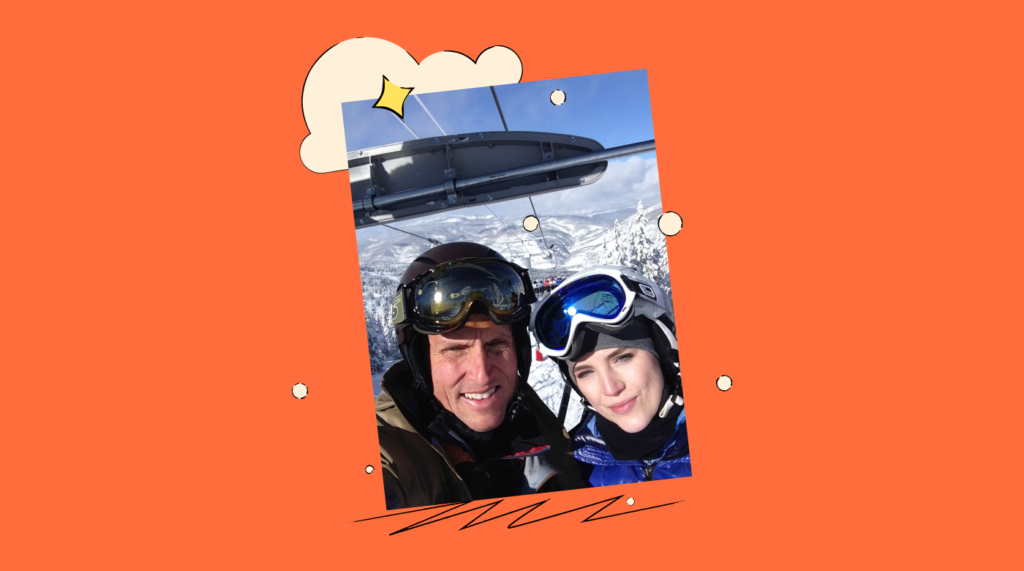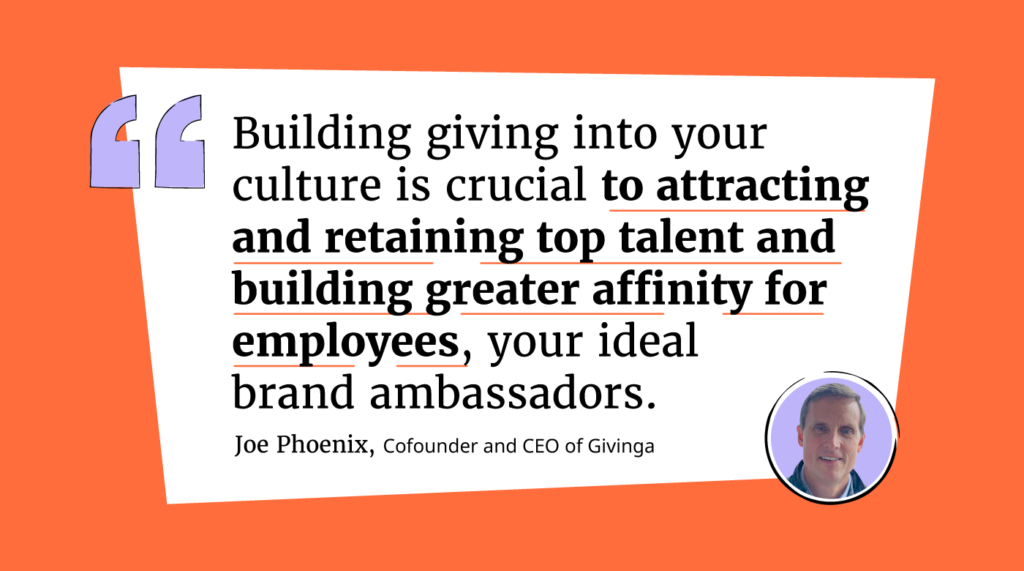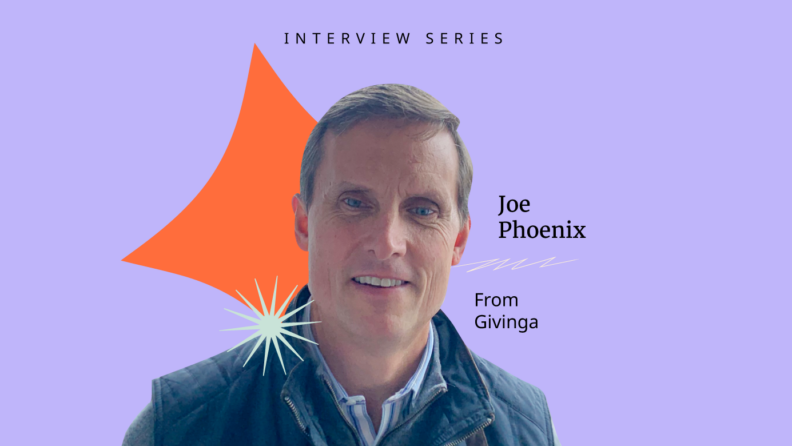We’re passionate about the world of work, and how we can make it better. To help satisfy our curiosity, we’ve launched an interview series where we pick the brains of experienced leaders, business owners, managers, and individual contributors to get their thoughts on how we can collectively build better workplaces.
We’d love to get to know you a bit better, tell us a bit about your backstory.
How long do you have? My backstory goes back a ways. I started my career in asset management in the late 80’s, worked for the same company for 25 years, turned 50 and decided I wanted to do something entirely different. Following my “North Star” of wanting to make an impact, I’ve been working with philanthropic technology—or Philantech® as I call it—for the last 7 years.

If we were to ask a friend to describe your personality to us, what would they say?
I think the two words that you would hear the most are relentless and calm. And I’ve found those two attributes work very well together. Building a business has taught me patience that I never really had before, the ability to balance the good with the bad and to appreciate and find humor in the process. It has also made me a much better listener. Figuring out how everything fits together is what I really enjoy.
Thinking back to your career journey, what’s an interesting story that stands out?
The 6 years I spent overseas running an international division for an American based company were super impactful to my career and outlook. A story that really sums this up occurred literally the first week in July that I arrived in London.
We had a highly productive French sales team and their “leader” came into my office to make sure I was aware that he was going on vacation in August. When I told him “Great, enjoy your time off,” he clarified that not only was he going on vacation in August, but that he was taking the entire month off. And by “off” he meant that he would return no calls and respond to no emails during that time. This structure went against everything that I had learned up to this point, but I agreed and let it happen. And for the 6 years I was over there this salesperson took the entire month of August off and his team crushed the next 11 months.
American companies have a very specific ethos around work/life balance, bureaucratic hierarchy and what constitutes a productive employee and, in many countries, our perceptions and beliefs are diametrically opposed. Learning to not only balance those competing philosophies, but be open to learning and understanding alternatives to what’s been ingrained in the US structure was really critical to my growth as a manager.
What’s the most impactful lesson you've learned over your career thus far?
Without question, it's how fragile a company’s brand is and how important it is to protect that. In the past, I’ve personally watched a brand get destroyed in 3 months and I remember being shocked with how quickly things turned negative. Once the fabric of a brand is torn, it's almost impossible to repair completely. And believe me, when you're in the middle of that it is no fun and you NEVER want to be there again. Brand is directly tied to culture and culture is just another word for people. So I focus on hiring great people, and then constantly reinforcing what the company’s North Stars are.
I love friction, independence and diversity of opinion, but I make sure they orbit around, and support a clear and uncompromising core set of values.
Thanks for giving us some insight into who you are! Let’s jump into things. When you hear the phrase “build a better world of work”, what comes to mind?
That phrase reminds me of, as I mentioned before, how culture = people. As companies, especially startups, evolve and expand, brand identity and company culture are purely reflective of the people who work there and the community that is being served. We’re witnessing a societal shift, where employees are searching for more purpose within their workplace, and demanding their brands take action to positively affect each of their communities. Employees are no longer joining companies and passively adapting to the culture, they want to be actively involved in defining that culture.
For you, what’s the main blocker you see as standing in the way of building a better world of work?
If you don’t set North Stars and get your culture centered around those, it’s very hard to create a sustainable and competitive organization.
It’s really amazing what a team can accomplish when employees believe in and relate to the mission at hand.
Everyone at Givinga believes in the power and impact of what we’re creating, and it shows in the way they collaborate and the work they deliver. And the initial team is absolutely critical in establishing the foundation of the company.
What’s one thing within our control that we can practically do to build a better world of work today? And, how do you recommend going about it?
To build a better world of work, I challenge companies to give their employees and communities the opportunity and autonomy to give back to charities and causes that matter most to them, in a sustained impact throughout the year.
A lot of people want to give back, but they don’t always know where to start. One way people can get access to proactive technology, so they can be prepared to give back to their favorite causes or respond immediately to critical events, is to turn to their employers. Some firms assume philanthropy is a cost of doing business, instead of a strategic brand-enhancing investment. We want companies to look at philanthropy as an integral, measurable investment in their communities, employees and brands.
Workplace culture is transformed when an emphasis is placed on philanthropy and giving back.
75% of employees who engage in corporate giving programs have longer tenures and,

Additionally, customers are more loyal to your brand when they can see the impact your company is making in their communities and know your company is actively supporting what’s important to them.
We can build a better world of work by fostering a culture of giving that supports what’s important to the employees and positively increasing return on impact to our communities.
Now more than ever, it’s imperative, easy and cost-effective for brands to build a better world of work with strategic philanthropy. Harnessing the power of this collective impact, aids more charities throughout the year by being proactive with the dollars brands already planned to donate, gives their employees the opportunity to give back and choices of where to give, and involves their consumers in positive impact.
Can you share one thing you’ve experienced, seen, or read about that is leading us towards a better world of work?
Related, I think there’s a healthy discussion taking place around defining the “workplace” as we move out of Covid. The fact that we’re even having this discussion reinforces the importance of proactively engaging with your employees. 3 years ago, the concept of working virtually was so “radical” that most companies didn’t even consider it as a viable alternative to the 9:00-5:00 office job. Yet there was obviously this incredibly strong employee undercurrent that just had no way to surface. Fast forward to 2023, and, not only is the virtual workplace active and growing, the huge stigma associated with this alternative has basically disappeared.
So you have this massive shift in the workplace structure that is overwhelmingly supported by a wide cross section of employees and it literally took a global pandemic to bring it to the surface. I think companies are beginning to understand the productivity potential from being more flexible and more employee centric.
I’m curious, thinking about building a better world of work, is there a company and/or leader who stands out to you as someone we should follow? If so, what are they up to?
I’ve admired Patagonia and its leadership team for years. The Yvon Chouinard story is legendary, and his North Stars can be seen all over the Patgonia culture to this day. It’s an amazing brand that has remained consistent in its messaging and, more importantly, led by example for over 3 decades. It’s one of the few “walk the walk” companies that I can think of.
How can our readers follow your work?
They could follow me or Givinga on LinkedIn, or sign up for Givinga’s monthly newsletter at givinga.com.
Thank you for adding your voice to People Managing People’s interview series on How to Build a Better World of Work!
Add Your Voice To The Conversation
Join our interview series and share your ideas for how we can build a better world of work.


